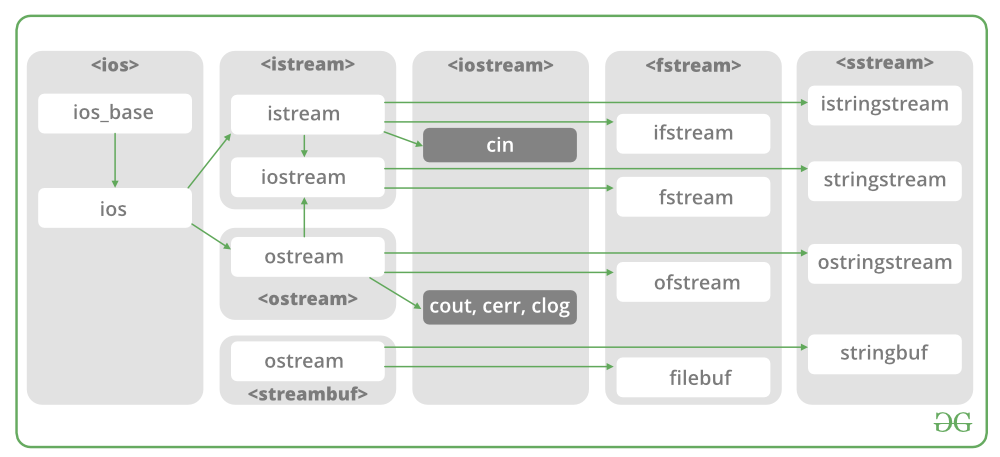So far, we have been using the iostream standard library, which provides cin and cout methods for reading from standard input and writing to standard output respectively.
This tutorial will teach you how to read and write from a file. This requires another standard C++ library called fstream, which defines three new data types −
| Sr.No | Data Type & Description |
|---|---|
| 1 | ofstream This data type represents the output file stream and is used to create files and to write information to files. |
| 2 | ifstream This data type represents the input file stream and is used to read information from files. |
| 3 | fstream This data type represents the file stream generally, and has the capabilities of both ofstream and ifstream which means it can create files, write information to files, and read information from files. |

To perform file processing in C++, header files <iostream> and <fstream> must be included in your C++ source file.
Opening a File
A file must be opened before you can read from it or write to it. Either ofstream or fstream object may be used to open a file for writing. And ifstream object is used to open a file for reading purpose only.
Following is the standard syntax for open() function, which is a member of fstream, ifstream, and ofstream objects.
void open(const char *filename, ios::openmode mode);
Here, the first argument specifies the name and location of the file to be opened and the second argument of the open() member function defines the mode in which the file should be opened.
| Sr.No | Mode Flag & Description |
|---|---|
| 1 | ios::appAppend mode. All output to that file to be appended to the end. |
| 2 | ios::ateOpen a file for output and move the read/write control to the end of the file. |
| 3 | ios::inOpen a file for reading. |
| 4 | ios::outOpen a file for writing. |
| 5 | ios::truncIf the file already exists, its contents will be truncated before opening the file. |
You can combine two or more of these values by ORing them together. For example if you want to open a file in write mode and want to truncate it in case that already exists, following will be the syntax −
ofstream outfile;
outfile.open("file.dat", ios::out | ios::trunc );
Similar way, you can open a file for reading and writing purpose as follows −
fstream afile;
afile.open("file.dat", ios::out | ios::in );
Closing a File
When a C++ program terminates it automatically flushes all the streams, release all the allocated memory and close all the opened files. But it is always a good practice that a programmer should close all the opened files before program termination.
Following is the standard syntax for close() function, which is a member of fstream, ifstream, and ofstream objects.
void close();
